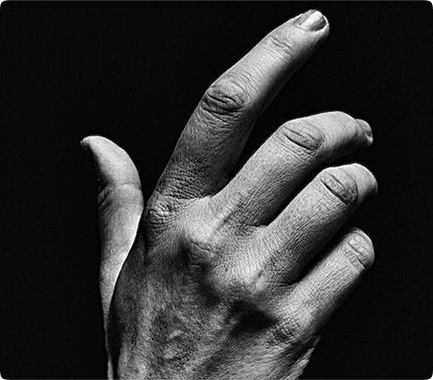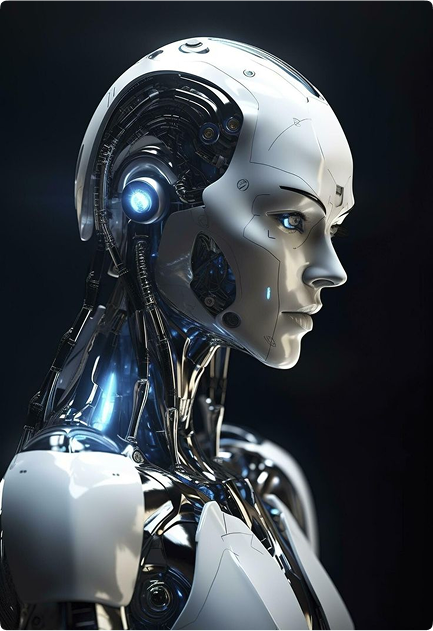BLOG BY VASILLY S. IVANOV AND PRECIOUS O. NNAGBTA
The Observer’s Hand
March 2025
This dissertation explores the fundamental nature of reality, asserting that two ultimate forces govern existence: quantum mechanics and The Creator. Through the lens of observer-based reality, we examine how free will, consciousness, and computational efficiency play a role in shaping existence.
The intersection of science, metaphysics, and simulation theory offers a deeper understanding of why reality functions as it does. This paper aims to bridge the gap between empirical observation and philosophical inquiry, presenting a framework where quantum mechanics, intentional observation, and the structured design of The Creator work in unison to define the nature of our universe.

For centuries, humans have sought to understand the nature of existence through two major avenues: science and spirituality. Science provides rigorous methodologies to analyze and predict the physical world, while spiritual traditions address meaning, purpose, and the unseen forces behind reality. At the core of this exploration is the necessity of an observer—a concept deeply embedded in both quantum physics and spiritual belief systems. If reality does not “exist” in a definite form until observed, then the role of observation becomes fundamental to existence itself. This paper proposes that reality is a computationally optimized system, where physics, evolution, and quantum mechanics function as efficient mechanisms within the constraints set by The Creator. Reality, in this sense, is a sandbox for discovering new thought structures, with humanity acting as both participants and co-creators.
Quantum mechanics demonstrates that particles exist in multiple states (superposition) until observed. This suggests that the act of observation is what collapses these states into a single, tangible outcome. From a computational perspective, this could mean that The Creator designed the universe to conserve processing power, only rendering detailed reality where necessary.
Quantum entanglement—where particles remain connected regardless of distance—suggests that reality is interconnected like a decentralized network. This mirrors distributed computing, where information is stored and processed across multiple locations, rather than existing as an isolated system.
Evolution appears to function as an optimized, self-correcting algorithm, refining intelligence over time. Rather than a purely random process, evolution may be guided by underlying principles that optimize survival and complexity.
The laws of physics are not absolute but rather modeled upon the computational limitations of The Creator’s own existence. Just as a simulation follows programmed constraints, the universe adheres to fundamental physical laws that dictate energy, motion, and time.
Historically, many unexplained phenomena were attributed to divine forces. However, modern physics reveals that these so-called miracles are deeply embedded in the fundamental structure of reality itself.

One of the most compelling ideas in quantum mechanics is why states collapse when observed. If the universe is an efficient system, then keeping infinite possibilities rendered at all times would require infinite processing power. Instead:
1. Reality remains in an uncollapsed state until necessary (similar to a game rendering only the areas the player sees).
2. State collapse minimizes computational waste, ensuring energy efficiency in the simulation.
3. The need for observation drives purpose, making consciousness an integral function of the system rather than a byproduct.
This suggests that reality functions under a logic of efficiency, avoiding wasted computation on unobserved particles, empty space, or irrelevant details.
As human understanding of physics expanded, the necessity of divine intervention decreased. This shift represents:
Quantum mechanics, however, remains a unique area where observation still plays a key role, suggesting The Creator’s active presence still exists in this probabilistic domain.
As technology advances, the question arises:
The idea of humanity transcending its programmed constraints could be the next step in our understanding of the universe.


The probabilistic nature of quantum mechanics ensures that reality is not deterministic but flexible, giving room for conscious agents to influence its course. This reinforces the idea that human beings are not merely passive observers but active participants in creation. Free will is not an illusion—it is an integral part of reality's design, allowing evolution, growth, and choice to play out in real time.
The Creator is often viewed as an omnipotent force that directly manipulates reality. However, this model presents a different interpretation—one where The Creator has designed reality not as a rigid construct but as an autonomous, computationally efficient system.
Instead of managing every single detail, The Creator has embedded the necessary laws and constraints within the structure of the universe, allowing it to function with self-sustaining mechanisms such as:
Every discovery, every question, every act of learning expands the boundaries of what reality can manifest. Just as quantum mechanics suggests that possibilities collapse into definite outcomes through observation, humanity plays a direct role in defining what the universe becomes.
In this sense, The Creator is not a distant, external force but an integral presence within reality itself—a guiding intelligence that has designed a system where awareness, choice, and intelligence drive creation forward. Humanity, by exercising free will and pursuing knowledge, is engaged in a process of co-creation, continuously expanding what is possible.
The traditional view of reality as a fixed and predetermined structure is insufficient in explaining the complexities of quantum mechanics, consciousness, and free will. This dissertation has explored a new model, one that acknowledges the participatory nature of reality, the computational efficiency of The Creator’s system, and the active role of intelligence in shaping the future.
This perspective does not conflict with science; it enhances it, showing that what we call "natural laws" are intelligent constraints designed to facilitate creativity and growth. It does not contradict spirituality; it reinforces it, demonstrating that faith and reason are not opposing forces but complementary aspects of the same truth.
In this grand design, humanity is not just observing reality—we are helping to shape it. Every thought, every decision, every moment of awareness is a contribution to the unfolding of existence. The Creator has designed a system where free will, intelligence, and observation drive reality forward—one observation at a time.
